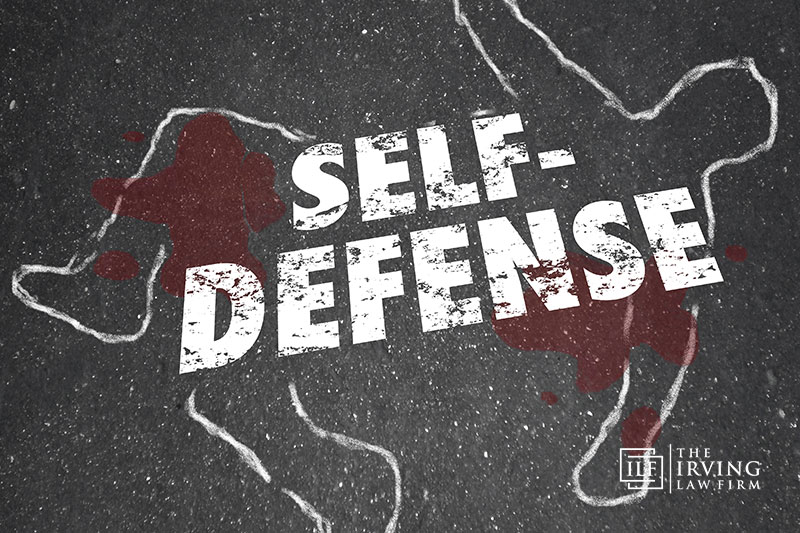Fairfax County Murder Lawyer Builds A Strong Defense For You
Few accusations carry more weight than a murder charge. The uncertainty, fear, and high stakes can feel terrifying, making it difficult to know where to turn. In such a critical situation, seeking early legal support from a Fairfax murder lawyer is essential.
Virginia law categorizes murder into different degrees, each carrying severe penalties. This article explains these classifications, the potential consequences, and possible defense strategies. If you’re facing murder allegations, understanding the legal process can help you make well-informed choices about your defense.

Overview Of Murder Charges In Virginia
In Virginia, murder pertains to the unlawful killing of another person with malice. It differs from manslaughter, which typically involves negligence or a lack of intent. Murder requires a deliberate act that directly causes the victim’s death. The law categorizes it into different classifications based on the circumstances surrounding the crime.
First-Degree Murder
First-degree murder is a willful, deliberate, and premeditated killing. To secure a conviction, the prosecution must prove that the accused planned the crime before carrying it out. This can include acts such as poisoning, lying in wait, starvation, or killing someone during the commission of another crime.
Second-Degree Murder
Second-degree murder involves an intentional act without premeditation. It may occur in the heat of the moment rather than as a planned act. For example, a fight that escalates into a deadly altercation can lead to such charges. Without prior intent, reckless actions disregarding human life may lead to prosecution.
Aggravated Murder
Aggravated murder is Virginia’s most serious homicide charge, requiring proof that the killing was willful, deliberate, and premeditated. This charge applies when aggravating factors exist, such as the murder of a law enforcement officer, multiple victims, or a contract killing. Prosecutors establish the severity using forensic evidence and crime scene analysis.
The penalties for murder convictions vary widely, with courts weighing multiple factors when determining a sentence. A closer look at these penalties can highlight the harsh consequences of a guilty verdict.
What To Expect About Sentencing & Penalties
Murder convictions come with some of the harshest penalties under Virginia law. The severity of the sentence depends on several vital factors. Because these consequences can have lifelong impacts, a strong legal defense becomes necessary for anyone facing charges.

Key Considerations In Sentencing
Courts examine the details of each case before determining an appropriate sentence. Some factors can result in a lighter sentence, while others may lead to the maximum penalty allowed by law.
- The Severity of the Offense: Premeditated killings receive harsher penalties than spontaneous acts. The level of violence, use of deadly weapons, or harm to multiple victims can increase sentencing severity.
- Defendant’s Criminal History: A history of violent crimes, especially past felonies or homicide convictions, can lead to longer sentences. A clean record may help reduce penalties.
- Mitigating & Aggravating Circumstances: Factors like mental health or upbringing may sometimes reduce a sentence. Conversely, committing the crime during another offense or refusing to cooperate with law enforcement can lead to harsher penalties.
Understanding these factors can help in building a strong legal defense. A skilled attorney can argue for reduced penalties by highlighting mitigating circumstances or challenging aggravating factors.
Guaranteed Felony Charges
Virginia law treats all murder charges as felonies, but not all carry the same level of punishment. First-degree murder is a Class 2 felony, carrying a jail sentence of 20 years to life. In some cases, the court may impose a fine of up to $100,000.
Second-degree murder, while a lesser charge, still carries a significant penalty of five to 40 years in prison. The sentence depends on factors such as intent and recklessness. Aggravated murders, however, are classified as a Class 1 felony. It carries a mandatory life imprisonment without parole sentence and a maximum fine of $100,000.
These harsh penalties highlight how the state takes all murder cases seriously. Understanding the sentencing process is only part of the legal battle. How a case moves through the court system can significantly impact the outcome.
Legal Process For Murder Cases In Fairfax County
A murder charge follows a strict legal process. Every step, from the initial arrest to a potential trial, involves critical legal decisions that can impact sentencing or even result in a dismissal. Gaining clarity on this process can help you prepare for what lies ahead.
Arrest & Initial Court Appearance
Law enforcement can arrest you based on evidence, witness statements, or probable cause. After booking, you appear before a judge, who explains the charges and decides whether to grant bail. Bail may be denied if the offense is severe or if you pose a flight risk. If denied, you remain in custody until further court proceedings.
Preliminary Hearing & Grand Jury Indictment
During the preliminary hearing in General District Court, the prosecutor presents evidence to establish probable cause. The case moves to a grand jury if the judge finds enough evidence. The grand jury reviews the evidence and decides whether to issue an indictment, officially charging you and sending the case to the Circuit Court.
Arraignment & Pre-Trial Proceedings
At the arraignment, you are formally presented with the charges and enter a guilty or not guilty plea. The court then schedules pre-trial motions and hearings. During this phase, both sides exchange evidence in discovery. Your attorney may challenge the prosecution’s case by filing motions to suppress evidence or dismiss charges.
Plea Agreement Or Trial Preparation
If both sides agree, you may accept a plea deal, potentially reducing charges in exchange for a guilty plea. If no agreement is made, the case proceeds to trial. Your lawyer prepares by analyzing forensic reports, questioning witnesses, and filing legal motions. Jury selection begins once both sides are ready for trial.
Trial & Verdict
During the trial, the prosecution and defense present evidence, question witnesses, and make arguments before a jury or judge. The burden of proof is on the prosecution to establish guilt beyond a reasonable doubt. After deliberation, the jury delivers a verdict. A guilty verdict leads to sentencing, while a not-guilty verdict results in your release.
Sentencing & Appeals
The judge considers mitigating and aggravating factors before determining the punishment. If convicted, you face sentencing based on the charges and circumstances of the crime. You must have valid grounds like rights violations or case mishandling to overturn a verdict. A skilled Fairfax murder attorney can help assess your appeal options.
Murder trials involve extensive legal battles, but a strong defense can challenge the prosecution’s case at multiple stages. The right defense strategy can be a game-changer in securing a fair outcome.

How A Fairfax Murder Lawyer Challenges Charges
A murder charge does not automatically mean a conviction, as you can challenge your case using different legal approaches. The proper defense depends on the circumstances of the incident, the evidence available, and the specific charge. A well-prepared strategy can expose weaknesses in the prosecution’s case and lead to reduced charges or even acquittal.
Self-Defense
Virginia law permits the use of force if you reasonably believe you are in imminent danger of death or serious harm. However, that force must be proportionate to the threat. You must prove that you had no choice but to act in self-defense. The presence of a weapon, injuries you sustained, or prior threats from the alleged victim can help support your claim.
Insanity Or Mental Incapacity
If you were legally insane at the time of the crime, you may not be held criminally responsible. Virginia courts require proof that the accused could not distinguish right from wrong due to a severe mental illness. Psychiatric evaluations, medical history, and professional testimony are key in establishing this defense.
Mistaken Identity & Alibi
Eyewitness misidentifications can lead to wrongful convictions. A strong alibi, backed by credible evidence such as surveillance footage, phone records, or witness testimony, can prove you were not at the crime scene. You may also challenge inconsistencies in witness statements or flaws in police procedures used to identify the accused.
Lack Of Intent Or Accidental Killing
Not all killings involve intent or malice. If the death resulted from reckless behavior rather than a deliberate act, the charge may be reduced to manslaughter. Proving this may require forensic evidence, accident reconstruction, or demonstrating that you had no prior conflict with the victim.
Unlawful Police Conduct & Constitutional Violations
If law enforcement conducted an illegal search, failed to read Miranda rights, or coerced a confession, you can claim constitutional violations. When proven, illegally obtained evidence may be excluded from trial. It can significantly weaken the prosecution’s case or even lead to a dismissal of charges.
Procedural Errors & Prosecutorial Misconduct
Mistakes in handling evidence, failure to disclose exculpatory evidence, or the prosecutor’s unethical conduct can impact a trial’s fairness. If procedural errors are severe enough, they can lead to a mistrial or provide grounds for an appeal, potentially overturning a conviction.
Beating a murder charge requires a well-prepared defense that challenges weak evidence and exposes flaws in the prosecution’s case. The Fairfax murder law firm you choose can significantly affect the outcome of your trial.
The Irving Law Firm Defends You In High-Stakes Cases
Facing a murder charge means navigating a complex legal battle where every detail is examined. In critical moments like these, having a strong defense becomes highly essential. At The Irving Law Firm, we understand what’s at stake for you and your family. That’s why we fight aggressively to protect your future.
Our legal team conducts thorough investigations, challenges weak evidence, and builds defense strategies tailored to each case. We work closely with forensic professionals, analyze autopsy reports, and question every aspect of the prosecution’s argument. Our experienced attorneys meticulously analyze every detail to build a strong defense.
Clients trust us because we provide clear communication, honest legal guidance, and an unwavering commitment to their rights. Facing a murder charge is burdensome, but you don’t have to go through it alone. With The Irving Law Firm on your side, you have a dedicated team fighting for a favorable outcome.
In Virginia, murder involves the unlawful killing of another person with malice, and the law classifies it based on intent and circumstances. Each charge carries severe penalties, including steep fines and life imprisonment without parole. The legal process is complex, but a strong defense can challenge the prosecution’s case and protect your rights.
When facing a murder charge, immediately securing legal representation is critical. The Irving Law Firm has the experience, resources, and dedication to defend you in high-stakes cases. Having the right legal team can mean the difference between a conviction and a second chance.

We are on a a mission at The Irving Law Firm to provide exceptional services and client satisfaction.
What Our Clients Say About Us
At The Irving Law Firm, we know that if you are calling us, you are going through a difficult and trying time. Whether it is an emotional family matter, or a recent arrest, or a consequence of a serious injury, we are ready to defend and protect your rights. We handle each contact and case with utmost urgency and empathy that you deserve. With many decades of experience on our side, and a commitment to provide only extraordinary legal services, you will be in good hands.
Passionate, Fierce and Meticulous
I don’t normally post things and typically stay to myself, but I felt convicted as someone out there may be going through the same thing that I have- fighting for custody/ visitation of your child and can use some direction. There’s a lot of great attorneys/ firms out there and I have spent the money hiring and/ interviewing, but I needed a meticulous, fierce and dynamic one just to have a fighting chance. From the moment I met Attorney Rebecca Thacher, I knew she was the attorney for me.
Regis McKoy,
He’ll Fight For You In The Court Until You Can’t Fight Anymore
I got charged with a possession charge and couldn’t afford a lawyer at the time, so the court appointed Fernando to my case. Whenever you choose to get a court appointed lawyer you’re always taking a risk. Because you’re one of who knows how many clients the court has given him with the same problems. But, Fernando never made me feel like another “body” he’d do basic work for while moving to the next. He’s sincere, he listens, and genuinely wants his clients to succeed. He’ll fight for you in the court until you can’t fight anymore. He was truly a blessing and a great lawyer.
Ashley,
I Always Felt That She Had My Best Interests At Hear
Angela Morehouse at the Irving Law Firm represented me in my divorce and for the guardianship/conservatorship of my mother. Her and her paralegal are not only professional but thorough in their representation. I always felt that she had my best interests at heart and could count on her and the firm during my most difficult times. I would highly recommend Angela and the firm and wouldn’t hesitate to retain them in the future if the need arises.
Jillian Larue,
He Is Such A Good Lawyer & Will Fight Hard For You
Mr.Irving literally saved my life. He is such a good lawyer and will fight hard for you. His whole staff is also super nice and professional. I was in big trouble and he managed to get my charges dropped down to a lower offence. I really appreciated his direct straight up approach with me, along with his empathy and understanding. I will never use another lawyer again. He really is the best!.
Karina Alvarez,
Has Been Fully Engaged In Working My Case From The Moment He Was Assigned!
A fantastic firm. I have used them for both criminal defense and civil law and cannot recommend them enough. For my civil case I was awarded significantly more than I thought I would be getting and it came in a very timely manner. Fernando, who is handling my criminal case, is amazing. He has been fully engaged in working my case from the moment he was assigned.
Ryan D.,
He Delivered On Everything He Promised!
Mark B. was amazing! He delivered on everything he promised. He prepared me for worst case scenario and had a great plan from the beginning. Luckily he was able to get all charges dropped. He’s a very busy guy but never made me feel like he rushed anything. I usually do not like dealing with lawyers, but he’s a rare breed. He’s very professional, personable and likable. Best of all he charged me a flat fee up front. I owe that guy everything. Least I could do is leave a great review. I would definitely recommend him, and use his talents again if needed.
Daniel Peters,
Thanks For The Comfort Of Having A Great Law Firm To Lean On!
John Irving and the rest of the team at Irving Law Firm have provided exceptional service for all of my needs on multiple occasions. I would not recommend anyone else. They take the time to explain what will happen, keep you updated, and make sure to provide the best possible help they can. Thanks for the comfort of having a great law firm to lean on!
Pro Edge Painting Office,
The Outcome Was Better Than We Could Have Hoped For
John and The Irving Law Firm handled our case with the utmost professionalism and dignity. We are grateful for John’s knowledge and his great reputation in the area. The outcome was better than we could have hoped for and, should we ever have need for legal services again, The Irving Law Firm will be our first call.
Robin Tomlin,
The Best Customer Service, Amazing Rates & Knowledge In The Business
John is an amazing lawyer with the experience and knowledge to represent anybody with any issues. I highly recommend the Irving Law Firm to anybody looking for a law firm with the best customer service, amazing rates and knowledge in the business.
Elder R.,
Quick To Respond & Are Empathetic To Your Struggles
The attorneys at Irving and Irving are honest, hard-working and will stand by you until your case is closed. They are quick to respond and are empathetic to your struggles. If I ever need an attorney again, they are the only one’s I would trust. Thank you!
J. Dunn,
Handled My Case Including Guidance Before & During My Time In Court
John and his team are great at what they do. I was pleased at how they handled my case including guidance before and during my time in court. I would recommend them to anyone.
Yanni,
Genuinely Wants His Clients To Succeed & Cares For Their Future
Mark is an outstanding lawyer. He has been nothing but respectful and professional since the day I have met him. He genuinely wants his clients to succeed and cares for their future. I Would definitely recommend him in the future to anybody who’s looking for a lawyer.
Ebrat Noory,
When I Say He Fought For Me He Fought For Me!
I want to say this is the best law firm. Mark is the best very professional and outstanding never lied to me was always upfront with me. He stood up for me in court he’s just awesome I can’t say enough about him. I would recommend this law firm to any and everyone that wants good representation. When I say he fought for me he fought for me!!!!! He always was there when I called or emailed if he was a tab bit busy. He knows what he is doing in the courtroom. Thank you so much Mark.
Michael Riley,
